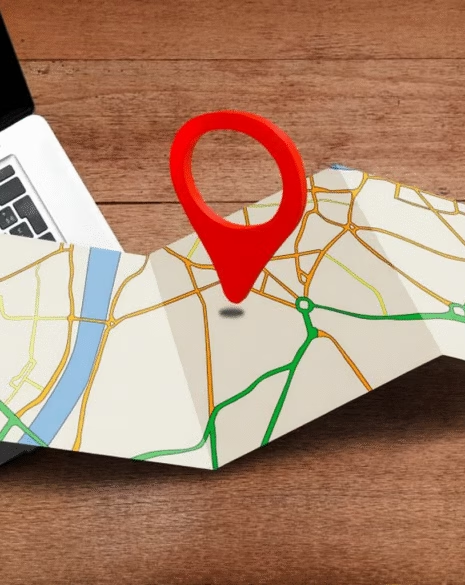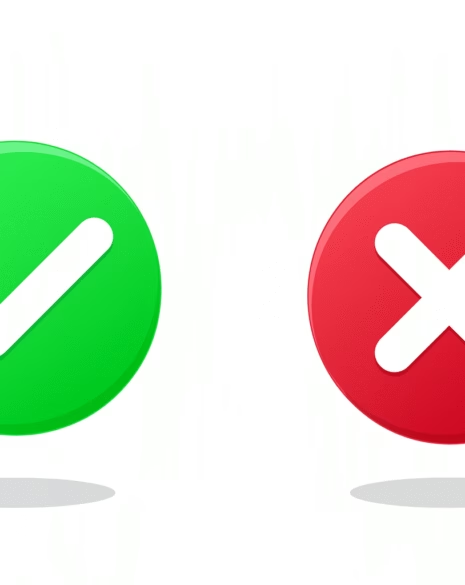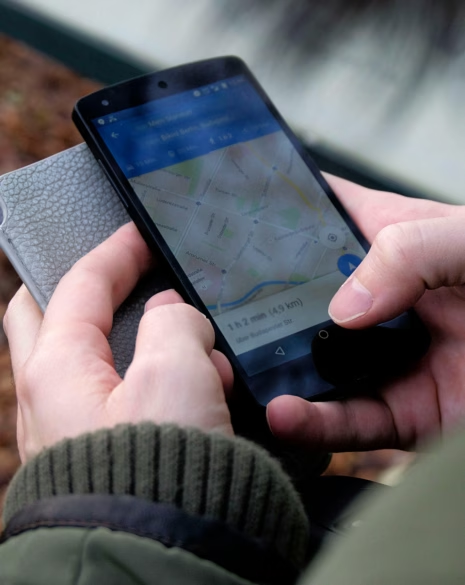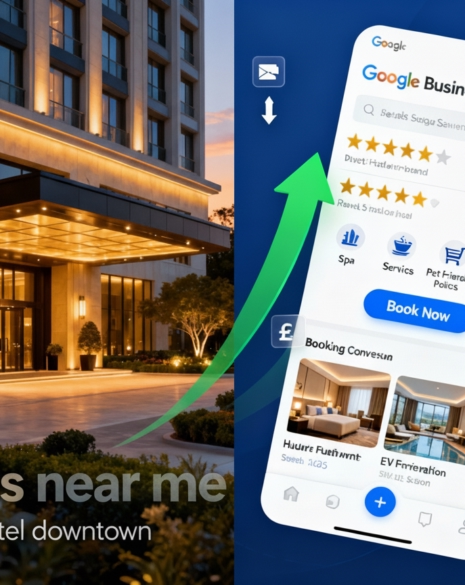Your hotel website might be getting traffic, but how many of those visitors are actually booking? That’s the real measure of success. Understanding — and improving — your website’s conversion rate is one of the most powerful ways to increase direct revenue without spending more on advertising.
But tracking conversions isn’t always straightforward. With different booking engines, device behaviours, and guest intent, it can be hard to know where to start. In this article, we’ll walk you through exactly how to measure and improve your hotel website’s performance — using data, not guesswork.
What’s a “Good” Hotel Website Conversion Rate?
A typical hotel website conversion rate — where a visitor completes a booking — sits somewhere between 1.5% and 3%. But it’s important to view that number in context. Your conversion rate will vary based on your location, brand awareness, the quality of your traffic, and the action you’re measuring.
For example:
- A campaign landing page might convert at 8–10% if it’s targeting a warm audience.
- Organic homepage traffic might sit closer to 1–2%.
- Enquiry forms for weddings or events might convert differently than room bookings.
The key is to track your baseline consistently. Once you understand how your site performs across different channels and devices, you can begin to optimise with purpose.
How to Track Hotel Website Conversions (Properly)
To improve conversion rates, you first need to track them accurately. Here’s what that setup typically looks like for a hotel:
1. Google Analytics 4 (GA4)
Set up events to track key actions such as:
- Clicking “Book Now”
- Viewing availability
- Completing a booking
- Submitting an enquiry form
Make sure to configure conversions in GA4 so you can view them in reports. If your booking engine is hosted on a separate domain, you’ll also need cross-domain tracking to ensure sessions don’t break.
2. Booking Engine Tracking
Not all booking engines automatically feed data back into GA4. Check with your provider whether integration is possible, or whether they offer a conversion tracking pixel (for Google Ads, Meta, etc.). If not, consider switching to a provider that supports modern analytics standards.
3. Heatmaps and Session Recordings
Tools like https://www.hotjar.com or https://clarity.microsoft.com can show how guests behave on key pages. Where are they getting stuck? What are they clicking on? These behavioural insights often highlight friction points that analytics alone can’t.
4. Booking Funnel Analysis
Map out the guest journey from landing page to booking confirmation. Where do most users drop off? Are they bouncing before they even check availability? Understanding the funnel helps prioritise which parts of the experience need work.
Why Hotel Websites Fail to Convert (Even With Good Traffic)
There’s no single cause for low conversions, but in our experience, most issues fall into a few key categories:
- Poor mobile UX: With the majority of hotel searches starting on mobile, a clunky mobile booking experience is a conversion killer.
- Confusing CTAs: If your call to action isn’t clear, bold, and easy to find, users won’t take the next step.
- Disjointed booking journey: Sending users to a third-party engine that looks nothing like your brand can cause drop-off.
- Missing trust signals: Reviews, ratings, secure booking messages, or “book direct” benefits help reassure hesitant bookers.
- Slow loading times: Guests won’t wait. If your hero image takes five seconds to load, you’ve already lost the room.
Addressing these issues doesn’t always require a full redesign. Often, small, focused changes can make a noticeable difference.
How to Improve Your Hotel Website Conversion Rate
Optimisation is a process — not a one-time task. But here are some high-impact strategies to start with:
Test and Improve Your CTAs
Move your primary call to action above the fold and ensure it uses active, guest-focused language (e.g. “Check Availability” instead of “Submit”). If you’re running a campaign, align the CTA with the ad copy to maintain consistency.
Highlight Book Direct Benefits
Let guests know what they get by booking directly — whether that’s the best price, free upgrades, or flexible cancellation. Make this visible throughout the journey, not just at checkout.
Add Light-Touch Urgency and Social Proof
Messages like “Only 2 rooms left at this price” or “Booked 3 times today” can drive action when used sparingly. Displaying recent reviews or a Trustpilot badge also helps build confidence.
Streamline Mobile UX
Check your mobile booking flow on both iOS and Android. Are form fields easy to complete? Are buttons spaced out enough? Can users navigate with one hand?
Use A/B Testing Tools
Platforms like Google Optimize (now sunset) or VWO allow you to test different versions of key pages. Even simple experiments — like changing your CTA button colour or rewording your headline — can improve results.
Monitor Performance Over Time
Use GA4 to track conversion trends monthly. Pair this with qualitative insights from heatmaps or surveys to get a full picture of what’s working — and what isn’t.
Final Thought
Improving your hotel website’s conversion rate is one of the highest ROI activities you can focus on. It turns your existing traffic into more revenue, reduces reliance on OTAs, and gives you greater control over your guest journey.
But optimisation isn’t about guesswork. With the right tracking in place — and a commitment to testing, iterating, and refining — you can create a booking experience that not only performs better, but feels better for your guests.
Need help optimising your hotel website for conversions? Talk to us.
